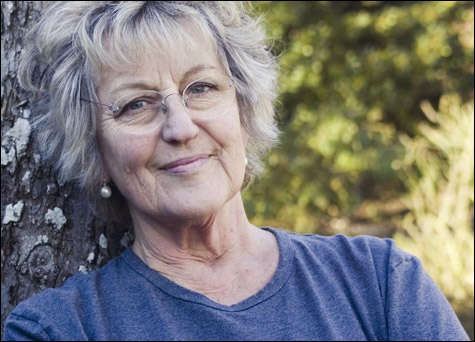
REALITY BIOGRAPHY Greer delivers Shakespeare’s wife from Shakespeare’s idolaters. |
| Shakespeare’s Wife | by Germaine Greer | Harper | 406 pages | $26.95 |
“Anyone steeped in western literary culture must wonder why any woman of spirit would want to be a wife.” With those fighting words (surely she had the opening sentence of Pride and Prejudice in mind), Australian-born feminist Germaine Greer (The Female Eunuch) opens her campaign against Bardolaters in particular and the male academic establishment in general. Even the title of her latest is a zinger — given that first sentence, you’d have expected something on the order of Anne Hathaway, Independent Woman. Or rather, Ann Hathaway, since Greer, iconoclastic as ever, drops without explanation the “e” that generations of (male) Shakespeare scholars have bestowed on his wife.Regardless of what’s in her name, biographies of Ms. Hathaway are scarcer than hens’ teeth, and no wonder: we know even less about her than we do about her husband. They marry, by special license, in Worcester in 1582: he is 18, she 26 and pregnant with their first child, Susanna. In 1585 she bears twins, Judith and Hamnet. Shakespeare shakes the dust from his feet and goes off to London to become the World’s Greatest Playwright; Ann and the kids stay behind in Stratford. Some 25 years later, Will returns, but his retirement is cut short by his death in 1616, on his 52nd birthday — whereupon Ann inherits the second-best bed. Ann dies in 1623, the year that sees the birth of the First Folio.
Bardolatry — even the more recent and considered kind — holds that the World’s Greatest Playwright should have a beautiful and sexy wife (like, say, Gwyneth Paltrow), and disappointed scholars have taken Shakespeare’s seeming neglect of Ann as evidence that she was anything but. Greer argues otherwise, pointing out, for starters, that the Shakespeare and Hathaway families had known each other since the 1550s, that Will, with nothing but a gift for verse, was hardly a great catch and Ann, at 26, by no means an old maid at a time when few married young. (When actress Anne Hathaway turns 26 this November, how many 18-year-old males will mark her as having passed her sell-by date?) The conventional wisdom is that Will quickly tired of Ann and small-town life and lit out for London; Greer suggests, with equal plausibility, that Ann encouraged her unemployed husband to go so she’d have one less mouth to feed.
Greer’s Ann might well have been a farmer, a haberdasher, and a brewer, like many other women of her time. Greer suggests that it was Ann rather than Will who wanted New Place — not the fine mansion of Bardic legend but, it seems, a “big tumbledown house” that she could restore to house her business enterprises. Greer burrows into some of the lesser-considered sonnets (21, 23, 25, 27, 29) and plays (The Comedy of Errors and All’s Well That Ends Well), Venus and Adonis (“Scholars would rather bicker for years over corrupt texts of the plays than address themselves to this authentic and acknowledged text that Shakespeare himself saw through the press”), the marriage contract between Susanna and John Hall, the peculiarly lackluster will (was the Bard infected with syphilis?), the possibility that Ann prompted the First Folio. Steven Greenblatt in Will in the World (a frequent Greer target) dug deeper than his predecessors, but Greer goes deeper still: Shakespeare’s Wife is all births and deaths and sickness and litigation and women’s work, the minutiae of actual life, and it makes the Bard’s male biographers look as if they were playing dress-up. It’s not just Shakespeare’s wife who’s different in this book, it’s Shakespeare’s world.